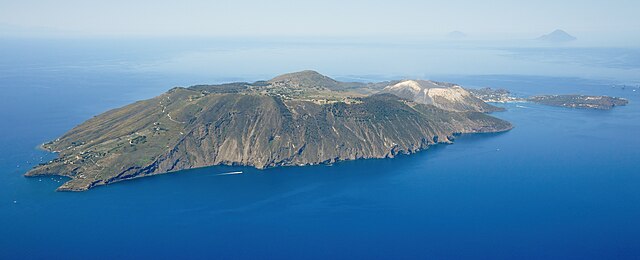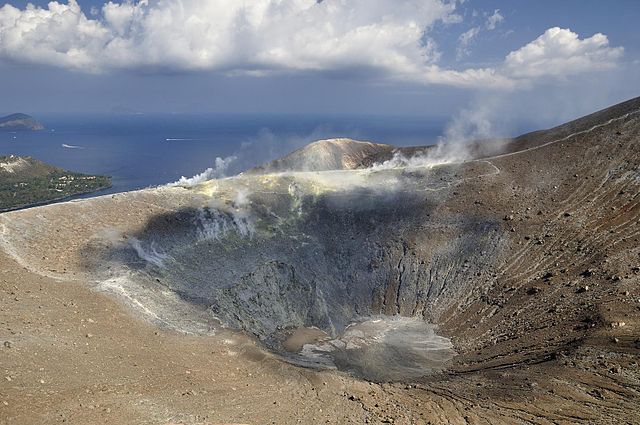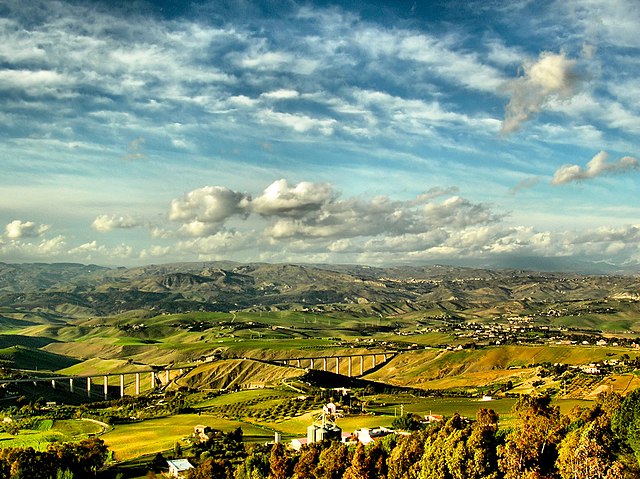Vulcano or Vulcan is a small volcanic island belonging to Italy in the Tyrrhenian Sea, about 20 km (12 mi) north of Sicily and located at the southernmost end of the seven Aeolian Islands. The island is known for its volcanic activity and contains several volcanic calderas, including one of the four active volcanoes in Italy that are not submarine. The English word "volcano", and its equivalent in several European languages, derives from the name of this island, which derives from the Roman belief that the tiny island was the chimney of Vulcan, the Roman god of fire. In November 2021, 150 people were evacuated from the island's harbour area due to increased volcanic activity and gases; an amber alert had been issued in October 2021 after several significant changes in the volcano's parameters.
Aerial view of Vulcano from the east
View from the island of Lipari of the northern profile of Vulcano on which the low Fossa cone is visible (center), the green islet in the foreground is Vulcanello and the isthmus connecting Vulcanello to Vulcano is barely visible
Aerial view of the Fossa cone
The Gran Cratere
Sicily is the largest and most populous island in the Mediterranean Sea and one of the 20 regions of Italy. It is one of the five Italian autonomous regions and is officially referred to as Regione Siciliana. The island has 4.8 million inhabitants. Its capital city is Palermo. It is named after the Sicels, who inhabited the eastern part of the island during the Iron Age. Sicily has a rich and unique culture in arts, music, literature, cuisine, and architecture.
The Monti Sicani in western Sicily
Mount Etna rising over suburbs of Catania
View of the Ciane river
Inner Sicily








